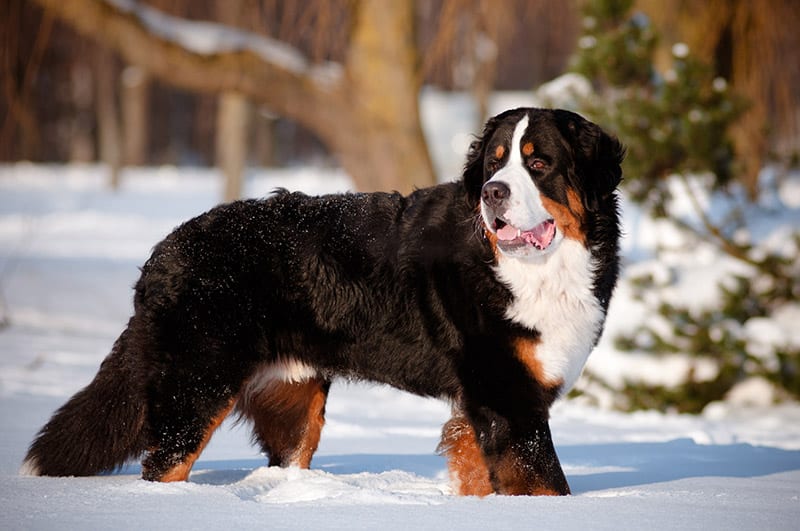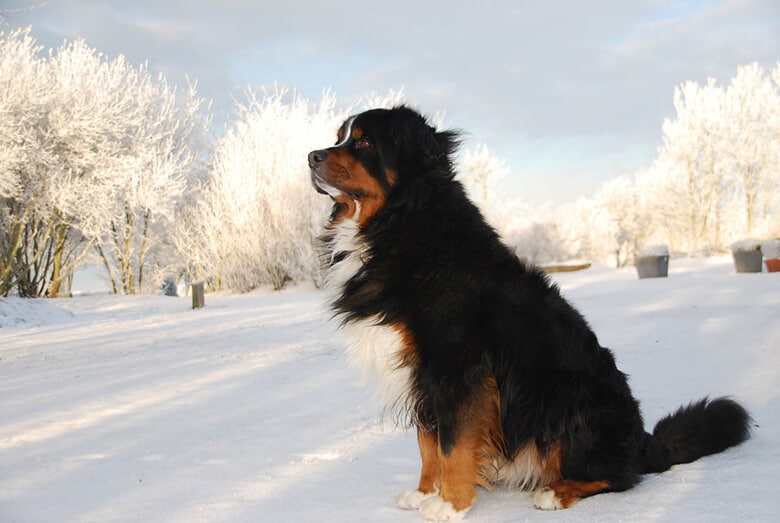Bernese Mountain Dogs are beloved for their gentle demeanor, striking appearance, and loyalty. As a large breed, many prospective owners wonder: when do Bernese Mountain Dogs stop growing? In this comprehensive guide, we’ll delve into the factors affecting their growth, milestones in their development, and how to ensure their optimal health and well-being.
Before diving into the specifics of their growth, let’s briefly introduce Bernese Mountain Dogs. Originating from Switzerland, these majestic canines have a rich history as farm dogs, adept at pulling carts and safeguarding livestock. Renowned for their tri-colored coat, intelligence, and affectionate nature, Bernese Mountain Dogs make excellent family companions.
Understanding Growth Phases
:strip_icc()/bernese-mountain-dog-4427890-hero-21e3d74070d0462cb9b7301491f37ec4.jpeg)
Puppyhood
Puppyhood is a critical stage in the development of Bernese Mountain Dogs, typically spanning from birth to around 12 months of age. During this phase, puppies undergo rapid growth and maturation, both physically and mentally. Their bodies are busy laying down the foundation for their adult size and structure.
Physical Growth: Bernese Mountain Dog puppies experience exponential growth during their first few months of life. They may double or even triple their birth weight within a matter of weeks. This rapid growth is supported by a high-calorie diet rich in protein, essential vitamins, and minerals.
Socialization and Training: Alongside physical growth, puppies engage in crucial socialization experiences and basic training. Exposing them to various stimuli, such as different environments, people, and other animals, helps shape their temperament and behavior. Positive reinforcement training techniques lay the groundwork for obedience and good manners.
Teething: As puppies’ teeth start to emerge, typically around 3 to 4 weeks of age, they enter the teething phase. Chewing becomes a natural instinct as they seek relief from teething discomfort. Providing appropriate chew toys and teething aids can help alleviate discomfort and prevent destructive chewing behavior.
Adolescence
The adolescence stage marks a transitional period for Bernese Mountain Dogs, spanning from around 12 to 24 months of age. During this phase, their growth rate begins to slow down, but they continue to undergo significant physical and behavioral changes as they approach adulthood.
Physical Development: While the rapid growth seen in puppyhood slows down, adolescent Bernese Mountain Dogs still experience muscle development and body composition changes. They may start to fill out and achieve a more proportionate adult physique.
Behavioral Challenges: Adolescence can be a challenging time for both dogs and their owners. Bernese Mountain Dogs may exhibit behaviors such as increased independence, testing boundaries, and heightened energy levels. Consistent training and positive reinforcement techniques are essential for guiding them through this stage.
Hormonal Changes: Hormonal changes, including the onset of sexual maturity, occur during adolescence. Unspayed females may experience their first heat cycle, while unneutered males may display mounting behavior and increased roaming tendencies. Spaying or neutering at the appropriate age can help mitigate these hormonal influences and prevent unwanted behaviors.
Adulthood
By the age of 2 to 3 years old, Bernese Mountain Dogs typically reach their full adult size and stop growing. The transition to adulthood signifies the culmination of their growth journey and the beginning of a more stable phase of life.
Final Size and Proportions: At adulthood, Bernese Mountain Dogs achieve their genetically predetermined size and proportions. Males generally exhibit larger stature and heavier build compared to females. Their tri-colored coat becomes fully developed, showcasing the breed’s distinctive markings.
Physical Maturity: While growth in terms of height and weight may have ceased, Bernese Mountain Dogs continue to mature physically and mentally throughout adulthood. Their bodies undergo subtle changes as they reach peak physical condition and maintain overall health.
Establishing Routine Care: Adulthood is a time for establishing consistent routines for care, exercise, and preventive health measures. Regular veterinary check-ups, balanced nutrition, and appropriate exercise help ensure longevity and quality of life for adult Bernese Mountain Dogs.
Factors Influencing Growth

Genetics
Genetics serve as the foundation for a Bernese Mountain Dog’s growth potential. Traits such as height, weight, bone structure, and coat color are inherited from their parents. Responsible breeders carefully select breeding pairs with desirable traits and genetic health screening to minimize the risk of hereditary diseases and promote the breed’s standard characteristics.
Breed Standards: The breed standard set by kennel clubs such as the American Kennel Club (AKC) outlines the ideal characteristics and proportions for Bernese Mountain Dogs. Breeders strive to adhere to these standards when selecting breeding stock to maintain breed integrity and promote healthy growth.
Hereditary Health Conditions: Certain genetic factors may predispose Bernese Mountain Dogs to specific health conditions that can impact their growth and overall well-being. Conditions such as hip dysplasia, elbow dysplasia, and degenerative myelopathy can affect mobility and contribute to abnormal growth patterns if left untreated.
Nutrition
Proper nutrition is fundamental for supporting healthy growth and development in Bernese Mountain Dogs. A well-balanced diet tailored to their specific nutritional needs is crucial throughout all stages of life, from puppyhood to adulthood.
Puppy Nutrition: During the rapid growth phase of puppyhood, Bernese Mountain Dogs require a diet rich in high-quality protein, essential fatty acids, vitamins, and minerals to support bone development, muscle growth, and overall health. Commercial puppy food formulated for large breeds often provides the necessary nutrients in appropriate proportions.
Adult Nutrition: As Bernese Mountain Dogs transition into adulthood, their nutritional requirements may change. Adult dog food formulated for large breeds helps maintain their optimal weight and muscle mass while providing essential nutrients to support their active lifestyle.
Portion Control: Overfeeding or underfeeding can adversely affect a Bernese Mountain Dog’s growth and predispose them to obesity or malnutrition-related health issues. Portion control based on their age, weight, activity level, and body condition score is crucial for maintaining a healthy weight and growth rate.
Exercise

Regular exercise is vital for promoting musculoskeletal health, maintaining a healthy weight, and supporting overall well-being in Bernese Mountain Dogs. Adequate physical activity helps strengthen muscles, joints, and bones while providing mental stimulation and preventing behavioral issues.
Moderate Exercise: Bernese Mountain Dogs thrive on moderate exercise tailored to their size and energy levels. Daily walks, playtime, and interactive activities such as agility training or hiking are beneficial for keeping them physically and mentally stimulated.
Avoid Overexertion: While exercise is essential, it’s crucial to avoid overexerting Bernese Mountain Dogs, especially during their growth phase. Excessive running, jumping, or strenuous activities can strain their developing joints and bones, potentially leading to orthopedic problems such as hip dysplasia or ligament injuries.
Lifestyle Considerations: Factors such as living environment, climate, and access to outdoor space influence the amount and type of exercise suitable for Bernese Mountain Dogs. Providing a safe and enriching environment conducive to regular physical activity is essential for their growth and well-being.
Health Considerations
Bernese Mountain Dogs are prone to certain health conditions that may impact their growth and development. Regular veterinary care, preventive measures, and early intervention are crucial for managing these health concerns and promoting optimal growth.
Orthopedic Health: Conditions such as hip dysplasia, elbow dysplasia, and osteochondritis dissecans (OCD) can affect the development of joints and bones in Bernese Mountain Dogs. Monitoring for signs of lameness, stiffness, or difficulty moving, especially during growth phases, enables early detection and intervention to prevent further complications.
Nutritional Health: Obesity is a common health issue in Bernese Mountain Dogs, particularly as they age. Maintaining a healthy weight through proper nutrition and portion control helps reduce the risk of obesity-related health problems and supports optimal growth and mobility.
Routine Care: Regular veterinary check-ups, vaccinations, parasite control, and dental care are essential components of preventive health care for Bernese Mountain Dogs. Addressing any health concerns promptly and following recommended wellness protocols contribute to their overall growth and well-being.
Monitoring Growth Progress
Monitoring the growth progress of Bernese Mountain Dogs is crucial for ensuring that they develop properly and remain healthy throughout their life. By regularly assessing their weight, body condition, and growth milestones, owners can identify any deviations from the expected growth trajectory and address potential concerns promptly.
Regular Weigh-Ins
Regular weigh-ins are an essential component of monitoring the growth of Bernese Mountain Dogs. Tracking their weight at consistent intervals, such as weekly or monthly, provides valuable insights into their growth rate and overall health.
Puppy Growth: During the rapid growth phase of puppyhood, frequent weigh-ins help track their progress and ensure they are gaining weight at a healthy rate. A veterinarian or breeder can provide guidance on the expected weight gain for Bernese Mountain Dog puppies based on their age and size.
Adult Maintenance: Even after reaching adulthood, it’s essential to continue monitoring a Bernese Mountain Dog’s weight to prevent obesity and ensure they maintain a healthy body condition. Sudden or excessive weight gain or loss may indicate underlying health issues requiring further evaluation by a veterinarian.
Body Condition Scoring
In addition to weighing your Bernese Mountain Dog, assessing their body condition through visual and tactile observations can provide valuable insights into their overall health and nutritional status.
Ideal Body Condition: A Bernese Mountain Dog in optimal body condition should have a visible waist when viewed from above and be easily felt but not seen ribs when palpated gently. Their abdomen should tuck up slightly from their chest toward their hindquarters.
Underweight Concerns: Signs of being underweight, such as prominent ribs, visible hip bones, or a pronounced waistline, may indicate inadequate nutrition or underlying health issues requiring attention. Adjustments to their diet and veterinary evaluation may be necessary to address these concerns.
Overweight Risks: Conversely, excess body fat or an inability to feel the ribs easily may indicate that a Bernese Mountain Dog is overweight or obese. Obesity predisposes them to various health problems, including joint issues and cardiovascular disease. Implementing a weight management plan, including dietary modifications and increased exercise, can help address obesity and promote a healthy weight.
Growth Charts

Consulting growth charts specific to Bernese Mountain Dogs can help owners gauge whether their dog’s growth aligns with the breed’s typical development milestones. These charts take into account factors such as age, gender, and body measurements to estimate expected growth patterns.
Age-Specific Milestones: Growth charts provide benchmarks for assessing a Bernese Mountain Dog’s growth progress at different stages of life, from puppyhood through adulthood. By comparing their current weight and measurements to the expected values on the growth chart, owners can identify any deviations and discuss them with their veterinarian.
Individual Variability: It’s essential to recognize that individual Bernese Mountain Dogs may exhibit variability in their growth rates and final adult size. Factors such as genetics, nutrition, and health status can influence how quickly or slowly a dog grows and reaches maturity.
Veterinary Guidance: Veterinary professionals can offer valuable guidance and interpretation of growth charts to help owners understand their Bernese Mountain Dog’s growth trajectory better. Regular veterinary check-ups provide opportunities to discuss any concerns or questions related to growth and development.
Conclusion
Understanding when Bernese Mountain Dogs stop growing involves recognizing the interplay of various factors, including genetics, nutrition, exercise, and health considerations. By providing proper care, nutrition, and veterinary attention, you can ensure that your Bernese Mountain Dog achieves their full potential in size and maintains optimal health throughout their life. Remember to cherish each stage of their growth journey, from playful puppyhood to majestic adulthood, as you forge a lifelong bond with your furry companion.


